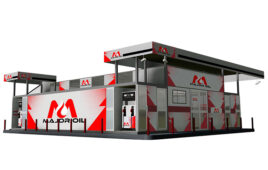Proposes upping minimum wage to $9 per hour in State of the Union address.
 In his State of the Union address last night, President Obama called for a raise in the minimum wage from its current $7.25 to $9 per hour. In addition, he proposed raising the tipped minimum wage — made by tipped employees, such as waiters— and automatically adjusting the minimum wage with inflation.
In his State of the Union address last night, President Obama called for a raise in the minimum wage from its current $7.25 to $9 per hour. In addition, he proposed raising the tipped minimum wage — made by tipped employees, such as waiters— and automatically adjusting the minimum wage with inflation.
Under the proposal, hourly wages would reach $9 in stages by the end of 2015. While $9 would bring the minimum wage to its highest in more than three decades, it would still be lower—when accounting for inflation—than the minimum wage rate in the 1960s and 1970s. The Administration noted the $1.75 increase in the minimum wage would be enough to offset roughly 10-20% of the increase in income inequality since 1980, the New York Times reported.
“The president said he was putting jobs and the economy front and center tonight, and that’s exactly what he did by calling for a minimum wage increase,” Christine Owens, the executive director of the National Employment Law Project, said in a statement. “A higher minimum wage is key to getting the economy back on track for working people and the middle class. The president’s remarks also cement the growing consensus on the left and right that one of the best ways to get the economy going again is to put money in the pockets of people who work.”
But some economists argue that making employees more expensive for companies to hire could add to the unemployment rate, and the proposal is expected to meet with much opposition from conservatives and business owners.
Many states have been raising the minimum wage on their own. Last week, a proposal in New York to raise the minimum wage to $8.75 met with much opposition.
“The current economic climate for New York’s mom-and-pop convenience stores leaves them unable to afford the 21% mid-year spike in payroll costs advocated today by the Women’s Chamber of Commerce and other organizations,” said NYACS President James Calvin in a statement. “Between general economic conditions and the huge loss of retail business due to widespread tobacco and motor fuel tax avoidance, their sales are flat or declining. Thus, their only options for dealing with a steep rise in wages would be to reduce staff, cut benefits, or increase prices proportionately, any of which would further weaken their businesses and the overall economy.”




